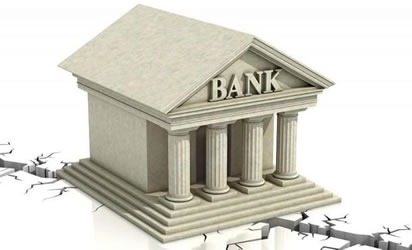Many financial institutions (FIs) today, especially the commercial banks in Nigeria, claim to implement sustainability in operations and all functions of the bank which have been exhibited lately in either their stand-alone sustainability reports or Integrated Reports, but many have so far left a vacuum in linking the implementation to their supply chains. If Supply Chain Sustainability (SCS) is so important, what does it really mean? SCS is the management of environmental, social and economic impacts, and the encouragement of good governance practices, throughout the lifecycles of goods and services. The objective of SCS is to create, protect and grow long-term environmental, social and economic value for all stakeholders involved in bringing products and services to market.
It is important to note that we are now in the era where environmental and social risks translate into reputational risks, credit risks, and financial risks to financial institutions. For financial institutions, many environmental and social impacts do not come from direct operations but from their supply chains. It makes a good business sense for FIs to expand their sustainability efforts to their supply chains, which can be exposed to a number of environmental, social, and governance issues that present significant challenges and opportunities. Considering, for instance, the purchasing power and the number of suppliers that many of these firms have, responsible/sustainable choices can have huge impacts. The main sustainability issues of the FIs supply chain include greenhouse gas emissions. From energy consumption, to transportation of goods, courier services, armored vehicles, employee commutes, and business trips all contribute to greenhouse gas emissions.
Deputy Senate President: Who does the cap fit from South-West?
Some of the main challenges related to human rights include providing a healthy and safe work environment; guaranteeing a diverse workplace and fostering non-discrimination, preventing harassments etc. A vendor’s ability to protect sensitive or personal data to prevent issues such as privacy intrusions, cyber-attacks, and frauds should be a key criterion in the supplier selection process. Electronic scrap components such as CPUs, monitors, printers, etc., contain potentially harmful materials such as lead, cadmium, beryllium, or brominated flame retardants and is often handled in crude, informal, and unsafe ways. Using third-party security personnel introduces an additional component of risk and FIs cannot avoid employing security staff to protect branch offices and guard money that is being transported. Choosing the wrong suppliers to handle the design and construction of facilities can have significant repercussions on sustainability.
A few practical case studies showing the risks of unsustainable supply chain are: The case of one of the banks when fire engulfed its headquarters in July 2018. A tanker with 33,000 litres of diesel, while trans-loading, had caught fire as a result of some technical fault from the tanker. The negative impacts measured here are: service disruption for about 3 hours which resulted in financial loss. One of the industrial generators of the banks was damaged; panic from customers and stakeholders; increase in carbon footprint of the bank as a result of the excessive fire; pollution of the drainages with spilled diesel, and wrong perception of lack of safety culture and consciousness etc.
Cases of unsustainable practices by supply chain in financial institutions are numerous and occur every other day. The FIs need to do the needful that will not hamper their operations and smooth running. For financial services, expanding efforts to include their supply chain gives companies a way to further integrate sustainability into their business, minimising risks and enhancing opportunities that can be derived from supplier relations. There are several benefits in practicing sustainable supply chain which cut across the triple bottom line (economic, social and environment). It helps to reduce cost, improves quality, speed of delivery, flexibility, resource utilisation, visibility and innovativeness.
In order to make supply chain sustainability a more broadly adopted and more thoroughly implemented business practice, we need to continue our efforts to build a better understanding of the business value created, alongside continued implementation of supply chain sustainability practices. The FIs should be well positioned to address sustainability challenges and minimise risks in its supply chains proactively and should look for opportunities to assess direct savings, ensure quality and safety.
Adeniyi is executive director and global sustainability leader at the Centre for Global Solutions and Sustainable Development (CENGSSUD).





